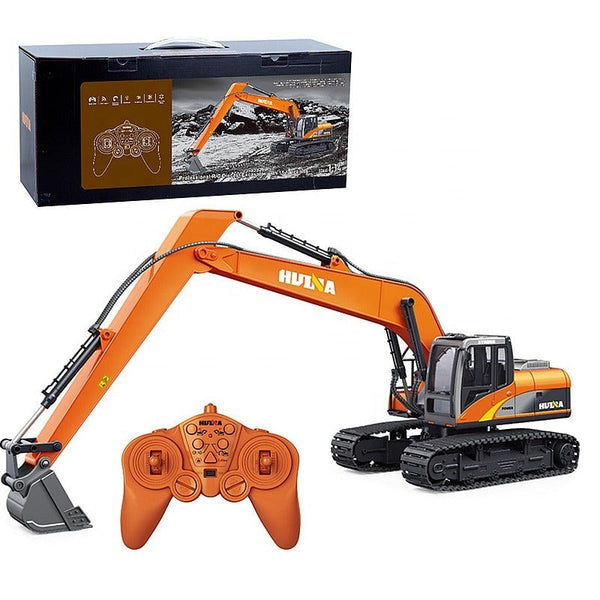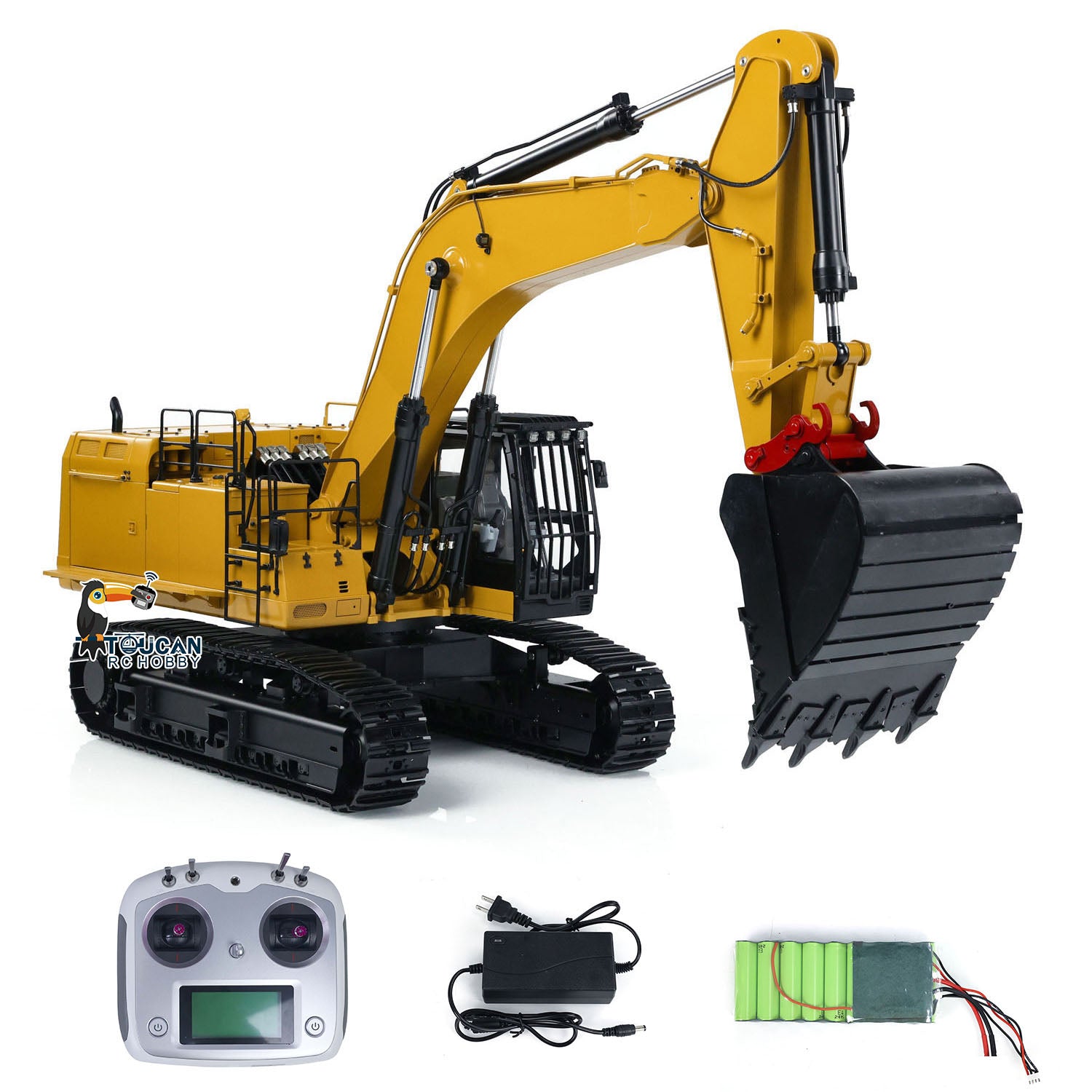Discover the Significance of Excavator in Modern Building Projects
Excavators are vital devices in contemporary building and construction projects. Their versatility enables them to perform a vast array of tasks, from excavating and grading to demolition and website prep work. Advanced functions, such as hydraulic add-ons and GPS, boost their abilities and effectiveness on work sites. As the sector advances, the relevance of excavators expands also extra. Understanding their function can disclose insights into the future of construction techniques. What lies ahead for these devices?
The Adaptability of Excavators in Various Projects
Excavators are frequently associated with large building and construction tasks, their adaptability allows them to be utilized in a broad array of applications, from residential landscaping to utility maintenance. In city settings, excavators can browse tight spaces to dig structures for homes or set up drain systems. Their capacity to do fragile tasks makes them optimal for landscaping tasks, where they can dig deep into for fish ponds or plant trees. In addition, excavators play an essential function in energy maintenance, successfully excavating trenches for pipelines or cables without interrupting bordering areas. In agricultural applications, they help in land cleaning and dirt preparation. Additionally, their flexibility allows them to be furnished with numerous add-ons, improving their performance across various tasks. This diverse nature of excavators not only improves various building procedures however also shows their important duty in modern infrastructure growth and upkeep.
Secret Attributes and Kinds Of Excavators
The conversation on key attributes and kinds of excavators highlights the essential features that make these devices invaluable in building. Various excavator types, each developed for details tasks, show their versatility and effectiveness throughout various applications. rc excavator. Recognizing these categories and functions is crucial for maximizing their use in contemporary construction tasks
Excavator Types Overview
Excavators play an essential duty in contemporary building, using adaptability and effectiveness throughout numerous tasks. These heavy machinery units been available in several types, each customized for specific applications. One of the most typical kinds consist of spider excavators, known for their stability on unequal terrain, and rolled excavators, which give greater mobility on paved surface areas. Miniature excavators are favored for tight rooms and small projects, while long-reach excavators are developed for deep digging. In addition, there are specialized excavators, such as hydraulic excavators, which enhance power and precision. Each kind features special abilities, making them important for tasks ranging from digging and grading to demolition and material handling. Recognizing these variants enables building and construction specialists to select the best excavator for their task needs.
Trick Features Explained
Recognizing the essential functions of excavators boosts their reliable application in building jobs. Excavators are identified by their effective hydraulic systems, which provide the necessary pressure for excavating, training, and moving materials. Their expressed arms permit for a vast array of movement, facilitating specific procedures in constrained spaces. In addition, the selection of attachments, such as pails, grapples, and augers, increases their adaptability to fulfill various task demands. The dimension and weight of excavators likewise contribute to their security and ability to move on different terrains. Improvements in technology have led to the assimilation of General practitioner and automation, improving precision and effectiveness in excavation jobs. These features jointly position excavators as crucial devices in modern-day building and construction.
Applications in Building
Changing building and construction websites, excavators play a crucial role throughout different applications, varying from residential structure projects to large infrastructure growths. These flexible makers are outfitted for tasks such as excavating foundations, trenching for energies, and site grading. Different types of excavators, consisting of crawler, rolled, and mini excavators, provide particular benefits tailored to the task needs. Spider excavators excel in rough terrains, while wheeled excavators use movement on paved surface areas. Miniature excavators are optimal for confined areas, making them prominent in metropolitan settings. The effectiveness and power of excavators considerably accelerate construction processes, guaranteeing timely job conclusion. Their flexibility further enhances their importance, allowing building groups to tackle a varied range of challenges successfully.
Enhancing Efficiency and Efficiency on Work Sites
Making best use of performance and performance on job websites is a critical purpose in modern building and construction. Excavators play an essential role in achieving this goal by simplifying various jobs. Their capacity to do multiple functions-- such as grading, digging, and training-- minimizes the requirement for added equipment, thereby saving time and resources.Moreover, excavators improve workflow by permitting faster conclusion of projects. With advanced features like hydraulic accessories and GPS technology, they can perform accurate procedures that lessen errors and revamp. This precision not just improves the quality of work yet additionally maximizes material usage, adding to set you back savings.The convenience of excavators permits them to adapt to different website problems, guaranteeing that tasks progress efficiently no matter of difficulties. By incorporating excavators into building processes, groups can considerably enhance their total performance, causing prompt project completion and boosted earnings.
Security Benefits of Utilizing Excavators
Excavators considerably enhance security on building and construction sites with improved operator visibility and reduced hands-on labor threats. By giving operators with a clear sight of their environments, excavators help to avoid injuries and crashes. Additionally, the machinery lessens the demand for workers to participate in hazardous manual tasks, even more advertising a much safer workplace.
Enhanced Driver Exposure
Building sites can be disorderly and filled with potential risks, boosted driver exposure plays a crucial function in guaranteeing safety when using excavators. Modern excavators are created with big, unblocked home windows and purposefully placed mirrors, permitting drivers to preserve a clear view of their surroundings (rc excavator). This enhanced presence is vital for spotting pedestrians, other machinery, and various challenges, significantly minimizing the threat of mishaps. Furthermore, many excavators include sophisticated modern technology, such as sensors and cams, to give drivers with added point of views, further enhancing awareness. The capacity to see even more plainly not only aids in efficient procedure but also promotes a much safer workplace, making it easier for drivers to navigate complex building websites without jeopardizing safety requirements
Reduced Manual Work Threats
When hand-operated labor is minimized through the use of excavators, many safety benefits emerge, considerably improving the well-being of construction workers. Excavators decrease the physical pressure associated with heavy training and repeated tasks, effectively lowering the risk of musculoskeletal injuries. By automating processes such as digging, grading, and moving products, they allow employees to keep a much safer distance from prospective dangers. Additionally, excavators are outfitted with advanced security functions, such as rollover defense systems and boosted operator ergonomics, which even more safeguard workers on website. The result is a significant decrease in workplace mishaps and injuries, causing enhanced productivity and spirits amongst building teams. Eventually, the fostering of excavators adds to a much safer and extra effective building setting.
Excavators in Earthmoving and Site Prep Work
In modern building, a significant part of earthmoving and site prep work tasks counts on the effectiveness and versatility of excavators. These makers are made to manage numerous soil types and surface, making them essential for rating, excavating, and trenching tasks. Their hydraulic arms can be geared up with different accessories, such as containers and augers, enabling operators to tailor their strategy based upon particular job requirements.Excavators stand out at relocating large quantities of planet swiftly and successfully, which speeds up the overall construction timeline. They can browse limited rooms and testing sites where typical tools may struggle, enhancing productivity. Furthermore, the precision of excavators assurances that site prep work sticks to rigorous specs, minimizing the danger of errors that could lead to costly rework.
The Role of Excavators in Demolition Tasks
Excavators play a necessary role in demolition jobs, as they possess the power and agility required to dismantle frameworks effectively. Furnished with numerous accessories such as hydraulic breakers, shears, and grapples, these machines can adjust to various demolition demands, whether for small buildings or huge industrial sites. Their convenience enables operators to tackle intricate projects while preserving safety and security and precision.In addition to their demolition capacities, excavators promote particles removal, guaranteeing that work sites remain site link well organized and risk-free. By breaking down structures right into convenient items, they permit structured cleaning and recycling of materials, lining up with modern-day sustainability efforts.Moreover, excavators can access limited areas and navigate irregular terrain, making them crucial in city demolition tasks. Generally, their durable design and multifunctionality make excavators a critical property in the demolition stage of building and construction, contributing considerably to job timelines and performance.


Future Patterns in Excavator Modern Technology and Use
As the building and construction industry evolves, developments in excavator modern technology are positioned to transform their use and effectiveness noticeably. One significant pattern is the combination of automation and man-made knowledge, permitting excavators to run with minimal human intervention. This change will certainly improve accuracy in jobs such as grading and trenching, decreasing human mistake and enhancing productivity.Additionally, the rise of electrical and hybrid excavators is shaping a much more lasting building and construction setting, lowering carbon emissions and gas prices. Boosted telematics systems are likewise emerging, making it possible for real-time surveillance of machine efficiency and upkeep demands, which can bring about much better operational effectiveness and longer tools lifespan.Moreover, improvements in accessory innovation are broadening the flexibility of excavators, enabling them to execute a more comprehensive series of tasks. The mix of these fads shows a future where excavators are smarter, greener, and extra adaptable, inevitably improving construction task dynamics.
Often Asked Inquiries
Just How Do Excavators Contrast to Various Other Building Equipment?
Excavators, identified by their flexibility and power, master digging and earthmoving contrasted to other machinery. Their capacity to do different tasks, consisting of training and demolition, makes them crucial in building and construction projects, enhancing total performance.

What Is the Average Lifespan of an Excavator?
The average lifespan of an excavator commonly ranges from 7,000 to 10,000 operating hours, depending on upkeep, usage conditions, and model. Appropriate care can extend this lifespan, ensuring peak efficiency throughout its operational years.
Just How Are Excavators Maintained for Optimal Performance?
Excavators need regular upkeep for peak efficiency, consisting of regular inspections, liquid checks, filter substitutes, and prompt repair work. Executing a preventative maintenance schedule helps prolong their life expectancy and assurances efficient operation in different building environments.
What Are the Costs Connected With Acquiring an excavator vs. renting?
The prices related to leasing versus purchasing read an excavator vary substantially. Renting deals reduced upfront costs however can accumulate in time, while acquiring needs a substantial preliminary financial investment, however gives long-term cost savings and asset ownership benefits.
What Training Is Called For to Operate an Excavator?
Operating an excavator requires specialized training, generally consisting of safety and security protocols, machine procedure methods, and ecological understanding. Certification programs often mandate sensible experience, enabling drivers to manage different tasks see post efficiently while guaranteeing conformity with sector regulations. The most usual types consist of crawler excavators, known for their stability on irregular surface, and wheeled excavators, which offer higher flexibility on paved surfaces. Small excavators are preferred for tight rooms and small-scale tasks, while long-reach excavators are made for deep digging. Furthermore, there are customized excavators, such as hydraulic excavators, which boost power and precision. Different kinds of excavators, consisting of spider, rolled, and mini excavators, provide specific benefits tailored to the job needs. Spider excavators excel in rough surfaces, while rolled excavators supply movement on paved surfaces.